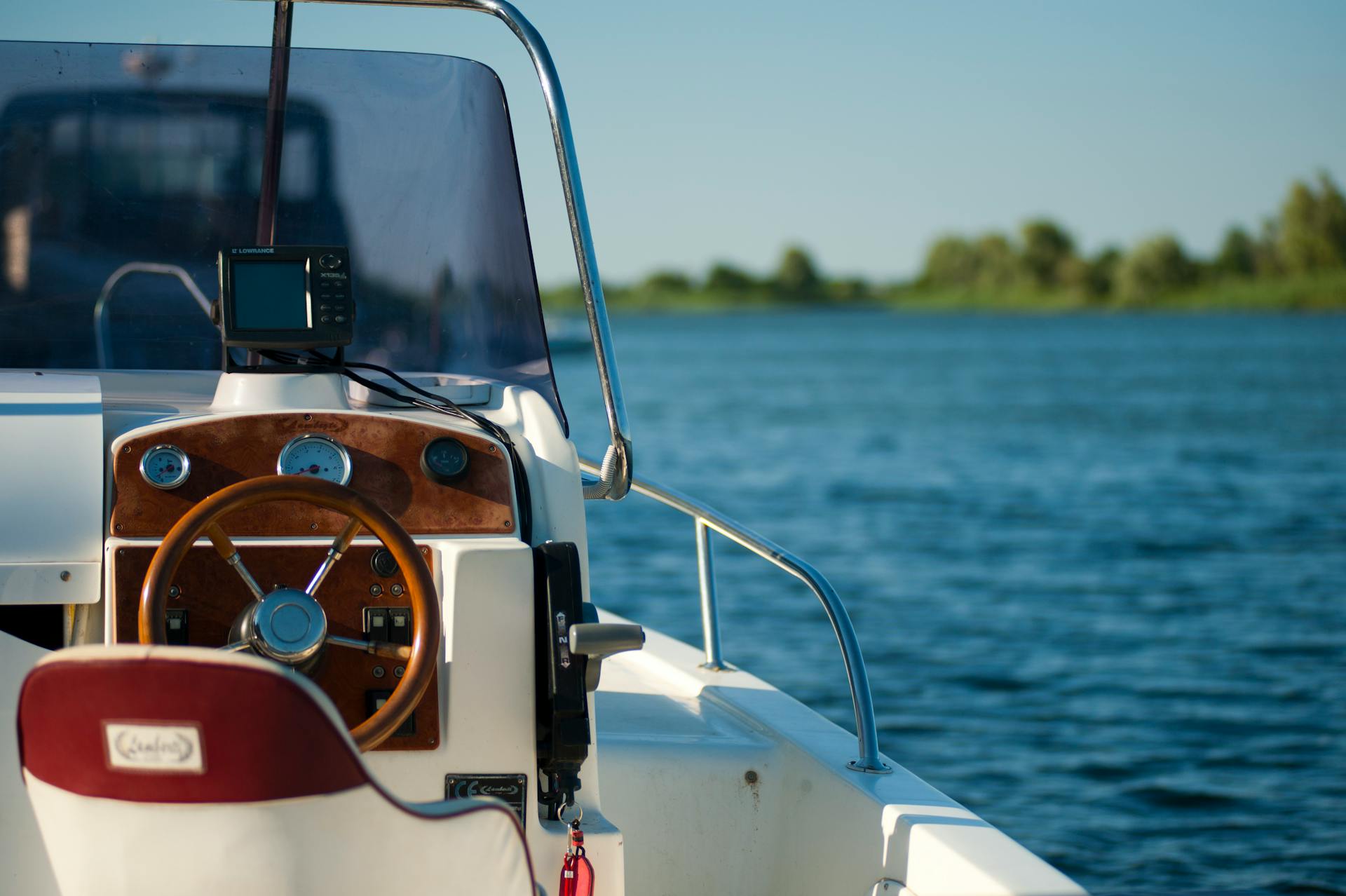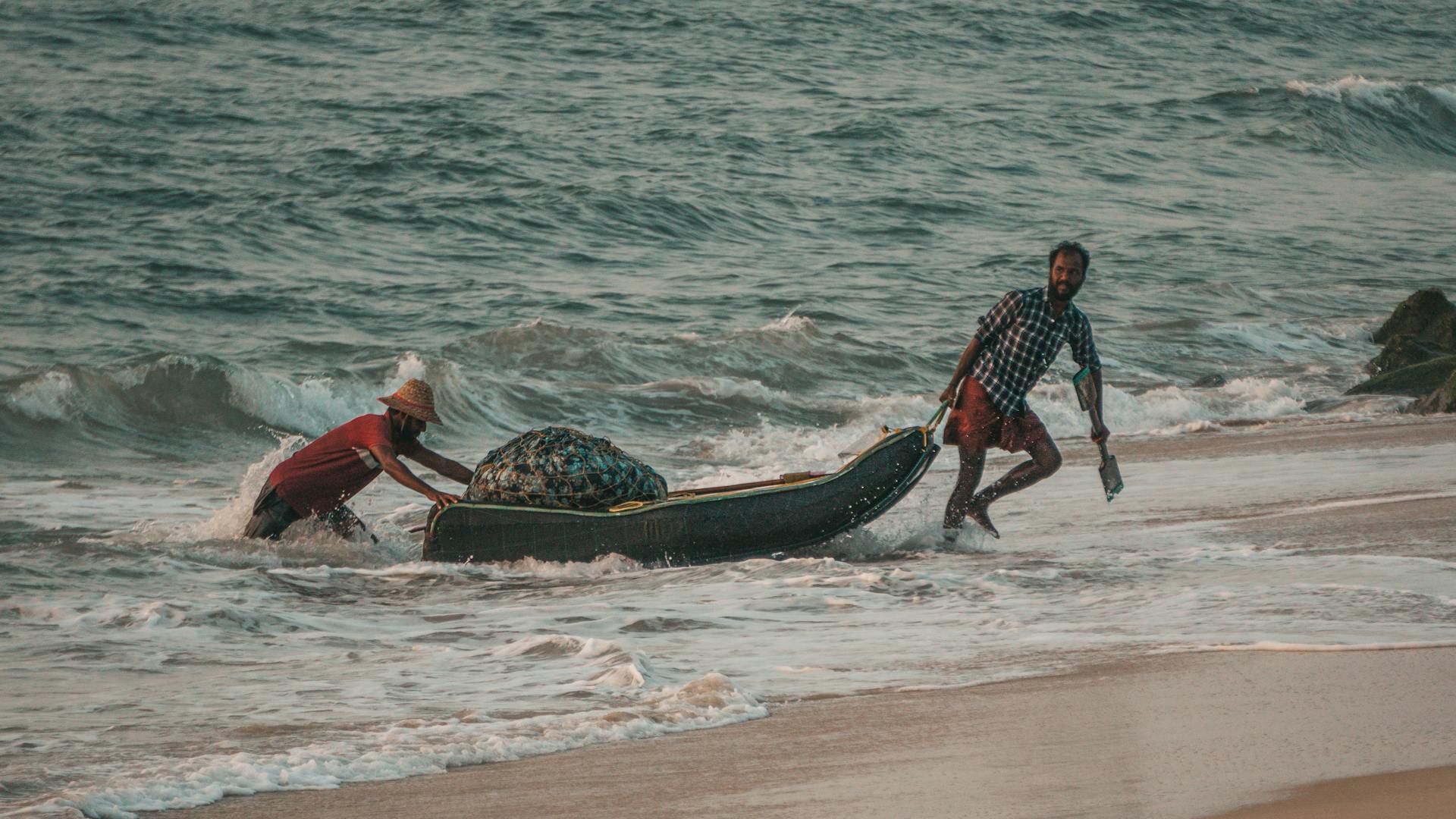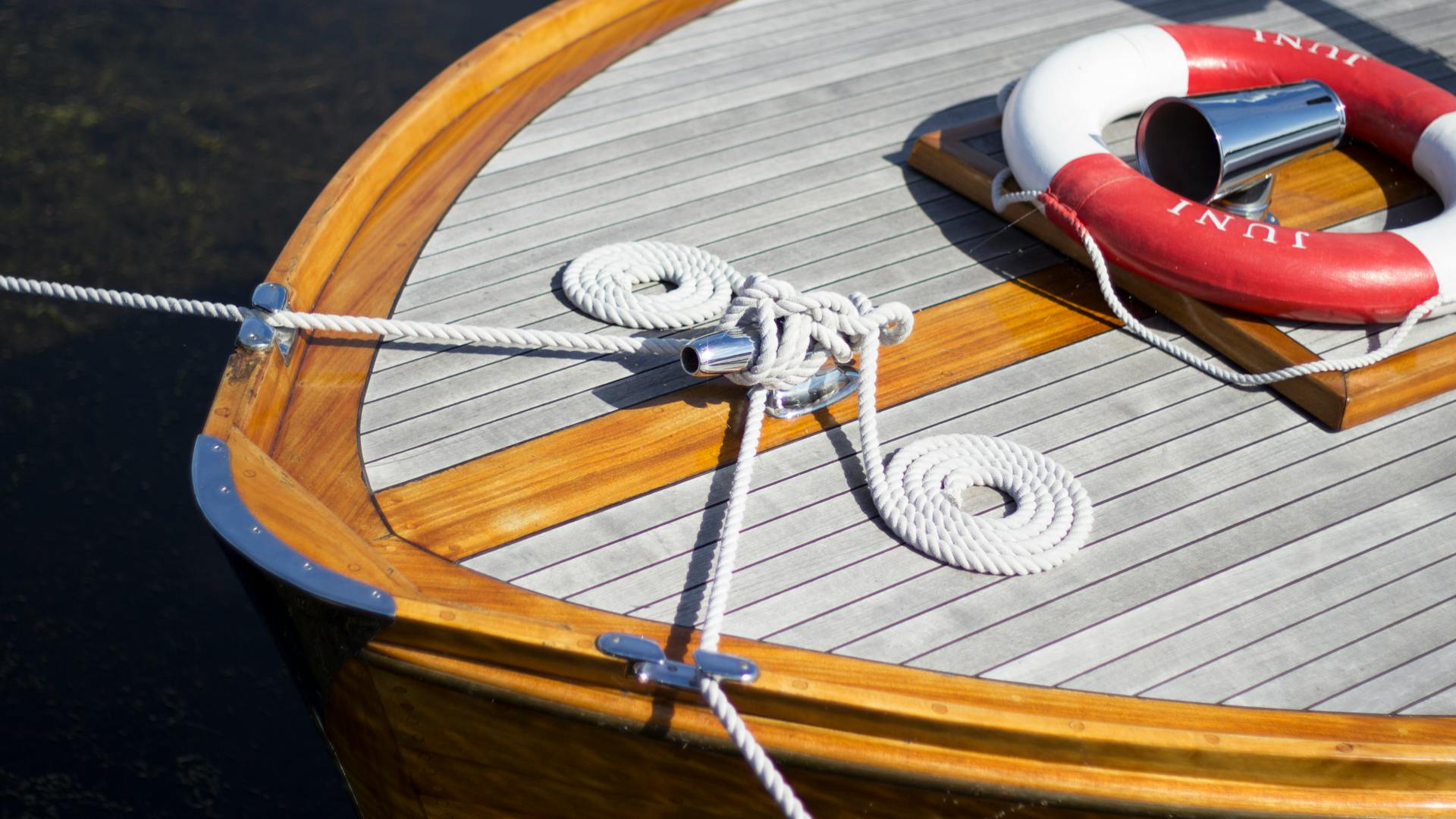
Boat insurance policies can be complex, but understanding the basics can help you make informed decisions.
There are several types of boat insurance policies, including liability, collision, and comprehensive coverage.
Liability coverage typically protects you from financial losses if you're found responsible for damaging someone else's property or injuring someone while on the water.
Comprehensive coverage, on the other hand, covers damages to your boat that aren't related to a collision, such as theft, vandalism, or natural disasters.
Most boat insurance policies require you to pay a deductible before your insurance kicks in.
The cost of boat insurance varies depending on factors such as the type of boat, its value, and where you live.
Some insurance policies also offer optional features, such as coverage for fishing gear or personal effects.
For your interest: What Happens If Someone Makes a False Insurance Claim
Understanding the Policy
The cost of a boat insurance policy can vary greatly depending on several factors, with average policies ranging from $200 to $500 a year. However, for more expensive watercraft, it can be 1% to 5% of the boat’s value.
To determine the right policy for you, consider the location where you boat, your experience and training, driving record, coverage amount, deductible, and boat value. For example, a half-million-dollar yacht could have an insurance cost between $5,000 and $25,000 annually.
Here are some key factors to consider when reviewing your policy:
- Does the policy cover towing costs?
- Is personal property on the boat, such as fishing gear, covered in this policy?
- Are there any restrictions on which waterways you're allowed to navigate?
What Does Typical Mean?
Typical boat insurance policies cover a range of things, but what exactly does that mean? In the context of boat insurance, "typical" refers to the standard protections that most policies offer. You can think of it like a basic package that includes the essentials.
Loss or damage to your vessel is a key part of a typical policy. This means that if your boat is damaged or lost due to an accident, theft, or other covered event, your insurance will help cover the costs. This type of coverage is often referred to as "hull coverage."
Property liability coverage is another essential component of a typical policy. This coverage helps pay for damages to someone else's property after an accident you cause, such as damaging a dock or another boat. You may also have liability coverage for any crew members you employ.
You might enjoy: Hazard Insurance for Rental Property
Here are some of the key protections you can expect to find in a typical boat insurance policy:
- Loss or damage to your vessel (hull coverage)
- Property liability coverage (damages to someone else's property)
- Passenger injury (bodily injury liability)
- Hull coverage (physical damage to your boat or trailer)
- Liability coverage for any crew members you employ
- Marine general liability (land-based property like an office or store)
- Shoreside liability
Different Types
Boat insurance policies vary based on the type of watercraft, with different policies for smaller boats, yachts, and specialized types like boat rentals, boat clubs, and professional vessels.
Smaller boats, like those used for casual cruising, typically require less comprehensive coverage than larger boats.
Larger boats, generally defined as 27 feet or larger, need more comprehensive coverage due to their exposure to harsher elements and longer travel distances.
This means that if you own a yacht, you'll likely need a more robust policy to protect your investment.
For your interest: Is Comprehensive Insurance Required in Florida
Policy Details
Liability coverage is a crucial part of boat insurance, helping to cover costs if your boat damages another boat or property, and medical and legal costs for injuries to others.
You can choose between cash value or replacement cost coverage for property damage. This means that if your boat is damaged, you can either get the cash value of the boat or the cost to replace it with a brand new one.
Readers also liked: Does Health Insurance Cover Funeral Costs
Medical payments coverage is another important aspect of boat insurance, covering medical expenses for you and your passengers if you're injured in an accident.
Some boat insurance policies also offer additional coverages, such as coverage for trailers, fishing gear, and special equipment. This can give you peace of mind and financial protection in case of an accident or loss.
Here are some of the key coverages you can expect from a typical boat insurance policy:
- Liability Coverage
- Property Coverage
- Medical Payments Coverage
- Uninsured Watercraft Coverage
- Additional Coverages (such as trailer and fishing gear coverage)
It's worth noting that not all boat insurance policies are created equal, and some may offer more comprehensive coverage than others.
Setting Up a Policy
When setting up a boat insurance policy, it's essential to consider what you want your policy to include.
You'll want to ask insurance providers if the policy covers the cost of towing your vessel. This can be a lifesaver if you break down or run aground.
Make sure to ask about personal property on the boat, such as fishing gear, and if it's covered in the policy. This will give you peace of mind knowing your gear is protected.
Some policies may have restrictions on which waterways you're allowed to navigate. Be sure to ask about these restrictions to ensure you can use your boat where you want to.
Here are some key questions to ask insurance providers:
- Does the policy cover the cost of towing my vessel?
- Is personal property on the boat, such as fishing gear, covered in this policy?
- Are there any restrictions on which waterways I’m allowed to navigate?
Erie Insurance
Erie Insurance offers comprehensive coverage for your boat and its equipment.
Their policy covers physical damage to your boat, trailer, or outboard motor, including vandalism, collisions with other boats or marine obstacles, and other accidents.
Liability coverage is also included, protecting you in case of injuries to others or damage to property.
Medical costs for you, your family members, and others are also covered under their policy.
Emergency services, such as towing to the nearest marina, are included in their policy, providing peace of mind in case of a breakdown or other emergency.
You can also get coverage for certain personal effects in or on the boat, such as clothing or fishing equipment.
Additionally, Erie Insurance will cover the cost of fire extinguisher recharge or replacement after it's used to fight a covered fire.
Explore further: Fire Insurance
Frequently Asked Questions
How much is boat insurance for a $100,000 boat?
Boat insurance for a $100,000 vessel costs approximately $1,500 per year. Annual premiums can vary depending on factors like location, usage, and coverage options.
What does boat insurance not cover?
Boat insurance typically excludes coverage for maintenance, wear and tear, and damage from gradual weathering and insect infestation
What does full coverage on a boat cover?
Full coverage on a boat protects against unexpected events like theft, vandalism, and severe weather, as well as damage from boating accidents and injuries to pets on board. It's a comprehensive safeguard for your investment, but there may be some exclusions and limitations to be aware of.
Featured Images: pexels.com


